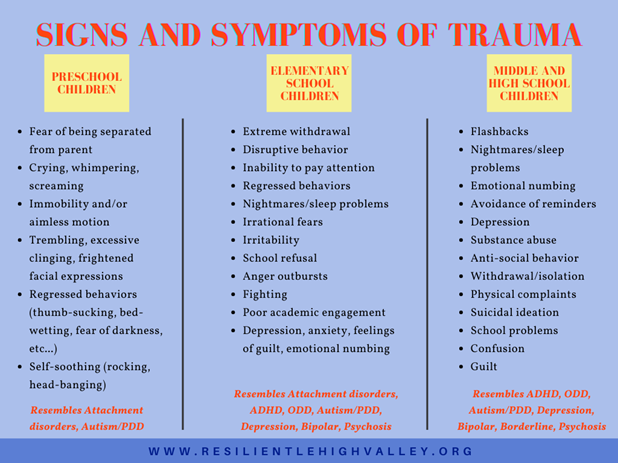
What do you know about trauma? Sadly many know too much about trauma as recent events and anniversaries of past tragedy’s put it to the forefront.
We asked Destiny McGee, Licensed Clinical Social Worker, and the Families, Inc. Jonesboro School-Based Clinical Supervisor, to help us understand what “trauma” actually means.
Trauma is such a buzz word—but what actually is considered “trauma”?
Trauma can be an “event”- think a very stressful point in time (examples: car accident, tornado) OR can be ongoing such as chronic stress or complex issues- sometimes abuse, illness, etc.
Trauma defined: a deeply distressing or disturbing experience. Out of the normal limits of stressful.
But is every bad thing that happens considered “traumatic”?
Every one responds differently to experiences that occur. For example, you can have two children in one home that may have experienced the same event but react differently, process it differently, etc. So, no. Experiencing a stressful experience may not have lasting trauma symptoms for everyone. Also, something may elicit trauma symptoms for someone that someone else may not have considered that situation distressing (to them).
We can’t avoid every distressing experience. Some things are genuinely outside of our control- natural disasters, accidents, school shootings. Now of course, there are many arguments that there are more policies and safety protocols that can be in place to prevent these occurrences which may be true- but there are ultimately events that we cannot control that will be traumatic because we cannot predict everything.
Some things can be avoided or at least enhanced safety measures to mitigate the risk- for example- safe driving, being aware of surroundings, following precautions whether that be for natural disasters, weather, water safety, fire safety, etc. Having emergency preparedness plans can help- but still may not completely prevent you from experiencing a traumatic event. Even when you are following the emergency disaster plan- that doesn’t eliminate the emotions and fear that may be traumatic.
And yes, you can experience trauma even if you didn’t experience it directly. Called vicarious trauma or secondary traumatic stress in which you can actually have symptoms similar to those experienced in PTSD by directly learning of or hearing about the events that took place even if you weren’t there. (Example: September 11 (9/11), school shootings).
How to tell if your children are experiencing trauma:

How can we help our kids handle trauma? By building resiliency using the 7 Cs:
- Competence: When we notice what young people are doing right and give them opportunities to develop important skills, they feel competent. We undermine competence when we don't allow young people to recover themselves after a fall.
- Confidence: Young people need confidence to be able to navigate the world, think outside the box, and recover from challenges.
- Connection: Connections with other people, schools, and communities offer young people the security that allows them to stand on their own and develop creative solutions.
- Character: Young people need a clear sense of right and wrong and a commitment to integrity.
- Contribution: Young people who contribute to the well-being of others will receive gratitude rather than condemnation. They will learn that contributing feels good and may therefore more easily turn to others, and do so without shame.
- Coping: Young people who possess a variety of healthy coping strategies will be less likely to turn to dangerous quick fixes when stressed.
- Control: Young people who understand privileges and respect are earned through demonstrated responsibility will learn to make wise choices and feel a sense of control.
(derived from American Academy of Pediatrics, 2006)
Bottom line is…What we do to model healthy resilience strategies for our children is more important than anything we say about them.
IF you or someone you know is or has experienced trauma and needs additional help, feel free to reach out to our professionals by calling Families, Inc., 877.595.8869.
Additional Resources:


